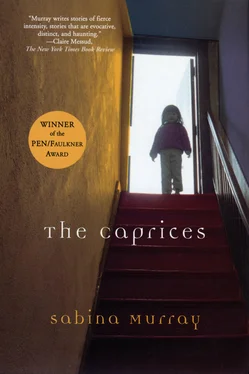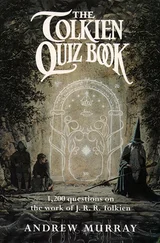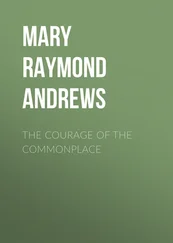“Alone?”
“No. Another servant helped me. His name is Pio Balmaceda.” Salas glanced up at the man. “I think you know him?”
“Yes. He is staying with us.” The man seemed satisfied. “I am sorry if we have inconvenienced you,” he said. When he reached the doorway, he turned to smile at Salas. “Your friend, Balmaceda, has already confessed to being Yoshimi Akihiro, a private in the Japanese army.”
But Salas had the last laugh. This man did not know everything. Balmaceda, or rather Yoshimi, was not in the Japanese army, but the navy. Yoshimi was not a private, but a commander, second in rank to a rear admiral. Salas knew because this was his rank. They had served together, side by side, with many men at their disposal.
• • •
On Salas’s twenty-eighth birthday, August 30, 1942, his appendix burst. He was in Manila at the time recovering from duty performed in the Solomon Islands. He had been in pain for a number of days. He thought he was suffering from an acute case of indigestion brought on by eating too much native food, which favored garlic and chili. When the appendix burst, the pain was intense to the degree that Salas could not scream — only moan. He moaned loudly for close to an hour before he finally managed to alert someone to his bedside. The Filipino servant was very distressed to see a superior bathed in sweat, shaking uncontrollably. He resisted the desire to run, finally crouching beside the bed so that Salas could whisper his condition into his ear, as best he could describe it.
“I am dying,” he said.
Perhaps it was the servant’s fear that he might somehow be held accountable for Salas’s death that made him suggest the Filipino surgeon, who was a prisoner at Fort Santiago. Of course, Salas (whose real name was Kamichi Ayao) would have preferred a Japanese doctor, but in retrospect the fact that none were immediately available probably saved his life: he did not need a leg sawed off nor a bullet tweezed from his buttocks. Salas remembered opening his eyes to see the doctor at his side. The doctor was thin from imprisonment. He had large, kind eyes. He palpated Salas’s stomach as gently as possible with hands that did not shake. Then he gave Salas a shot, and as he slowly faded from view whispered in his ear, “It is only the appendix. I have done this at least a hundred times.”
This reassurance is what was rooted in Salas’s mind. The doctor, Dr. Santos, was a prisoner. He had to do what was asked of him, without questioning. His life depended on Salas’s survival, but his words were said in kindness. Later, when Salas was recovering from the surgery, he found a scrap of paper concealed in the pocket of his shirt. The shirt had been laundered, but somehow the message — although badly faded — remained legible. It said, “My son is Arturo Santos in Fort Santiago.”
The doctor must have put it there.
How many messages were enclosed in this one? It is hard to say. Definitely “Please save my child,” or “You can return my favor,” or “I have hope when there was none.” At the time, feeling munificent, Salas actually had someone look Arturo Santos up. Yes, he was at Fort Santiago. He was eleven years old. And that’s all. What else could one learn about an eleven-year-old boy? That he was short? That he was thrilled by cars? That he used his sleeve in place of a handkerchief?
Salas was sure that he could have done something to ensure Arturo Santos’s survival, but war makes one negligent of lives, particularly those that are not useful in any way. The scar healed. Salas could tell women he’d received it in battle. Why not? He had earned it at the hands of the enemy.
Salas forgot about the doctor. He forgot about his son. Years passed. The battle was no longer offensive, and now the unthinkable — surrender — was being planned in detail. Yoshimi and he were in charge of supervising the burial of a cache of gold bullion, reportedly the spoils of Yamashita’s march down the Malay Peninsula. Salas remembered Yoshimi’s boots that morning. For the first time ever, there were smudges on the toes.
Digging had started on the caverns months earlier. Only a handful of officers knew what they were for. MacArthur was already in Manila. Perhaps MacArthur had expected the Japanese to throw up their hands in exasperation and start packing. Their presence in his old neighborhood infuriated him, but Salas and the other men were under orders. MacArthur began shelling Manila; the corpses — nearly all Filipinos — filled the streets. Dogs, who had not been seen to roam the city in months, suddenly appeared well fed.
Yoshimi (now Balmaceda) was coordinating with the engineer and — strangely enough — the language scholar, who had been instructed to translate the maps into an obscure Japanese dialect that had not been spoken for over a thousand years. The scholar was a tall, thin man with large watery eyes. His hands were large as well, and hung loosely on his wrists, as if they were a marionette’s. Salas couldn’t remember what the dialect was called, too obscure even for an educated man to be familiar with, but it was the bane of Yoshimi’s existence. There was no word for “mine,” “bomb,” or even “wire.” The treasure was to be booby-trapped by a complicated series of incendiary devices and explosives. The happy treasure hunter armed with nothing but a shovel would not get far; with a bulldozer he’d be blown sky high along with the surrounding city block. One needed the maps to have any success at all. In the end, the scholar translated that which was translatable — sometimes resorting to homonyms, sometimes approximating meanings. For example, since there was no word for “prisoner,” he substituted the word “slave.”
Salas was in charge of organizing the POWs into functioning work crews. Most of the men were sick, and in other circumstances probably would have been impossible to move. But the sound of shells exploding all over Manila gave these walking cadavers hope. “Dugout Doug” had actually returned, as promised, and they were not going to compromise their chances at freedom at such a close juncture. Americans, Australians, and Filipinos lined up side by side. The hollow look was gone. They shouldered their shovels in the war’s twilight, much as they’d borne arms at its start. Salas could feel the stifled excitement, the hope. He remembered an Australian soldier whose eyes actually twinkled in his gaunt face. His shirt had rotted to a comic effect: all that was left were the sleeves and the collar, held by a narrow strip of reinforced fabric that laced them together across his shoulders. As he passed Salas, entering the mouth of the hole, Salas heard his thought, “Last thing I’ll do for a Jap.” And it was.
The first day’s digging went without a hitch. All the prisoners were shot at the end of the day, as Salas had previously decided. The following day, one of the bombs went off, killing a Japanese officer. The engineer was furious, but didn’t explain his anger to anyone. He left to make another bomb, and the Japanese officers waited and waited. Three days they waited in Fort Santiago. The smell of rotting corpses lay over the entire city in a thick smog. Everyone was sick. MacArthur’s bombs exploded with the thud thud thud of a beating heart. Salas got used to it. Finally, the engineer corrected the problem and presented Yoshimi with a lovely bomb, but when Salas sent the POWs back down into the ground, the gas from the rotting corpses of the men he’d killed the first day made them ill, and they could not dig. Yoshimi pulled him aside. This was Salas’s responsibility. The prisoners were sitting in rows at the mouth of the hole. They looked at Salas with pouchy, alien eyes as if they too were admonishing him for failing to complete the work. At the end of one of the rows, carefully wrapping another man’s foot in a rag, was Dr. Santos.
Читать дальше












